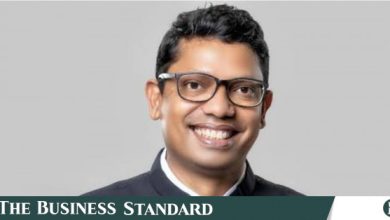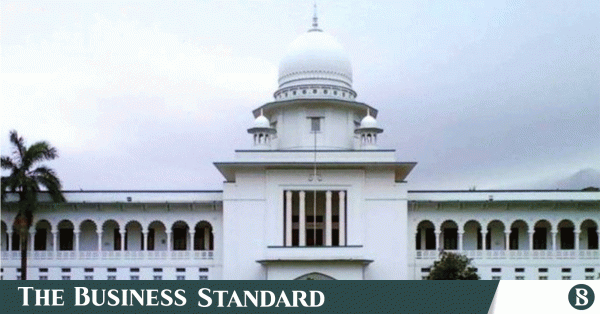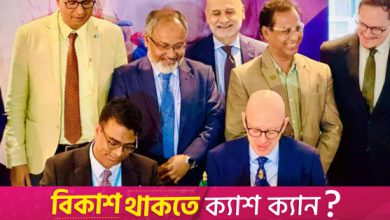What interim govt can do to recover laundered money


Freezing the accounts of corrupt individuals and money launderers is only the first step – a far broader effort, including international cooperation, is required to recover laundered funds.
Analysts suggest that if Bangladesh can overthrow a powerful dictator through mass movements, it also has the potential to reclaim illicit funds from the corrupt and bring back laundered money.
To achieve this, Bangladesh must rigorously apply its national anti-money laundering laws and leverage international treaties and agreements, such as the United Nations Convention Against Corruption and the Financial Action Task Force (FATF), to secure assistance from other countries.
The country can also engage in mutual legal assistance treaties to request support from foreign jurisdictions, which involves sharing information or initiating legal action abroad.
Also, a coordinated effort with international organisations like Interpol and the Egmont Group of Financial Intelligence Units is crucial to facilitate cooperation and information exchange.
Moreover, Bangladesh could seek the support of the United States and European nations in identifying its money launderers and tracing the funds, especially given the close ties of the interim government led by Dr Muhammad Yunus with these countries.
This issue comes to the fore as news pours in about bank account investigations and freezing targeting former ministers, lawmakers, and other influential figures from the recently ousted Sheikh Hasina-led government.
Whenever a government falls, the incoming administration tends to follow a familiar script: investigating the financial dealings of the alleged corrupt – a practice that has become almost ritualistic in Bangladesh’s political landscape.
Various agencies, including the Bangladesh Financial Intelligence Unit, the Bangladesh Securities and Exchange Commission, the central bank, the National Board of Revenue, and the Anti-Corruption Commission, swoop in to freeze the bank accounts and bar share transfers and sales of influential figures from the previous government.
But this raises a critical question: Does this method work?
Are these agencies truly getting to the root of corruption, or are they merely skimming the surface while the real culprits slip away with billions?
Take, for instance, the revelation in mid-July, when then-prime minister Sheikh Hasina disclosed at a press conference that one of her low-level staff members had somehow amassed a staggering fortune of Tk400 crore, equivalent to $33.33 million (Tk120/USD). The revelation led to a swift response from the central bank, which ordered the freezing of bank accounts belonging to Hasina’s former peon Jahangir Alam, his wife Kamrun Nahar, and their associated institutions.
Yet, those familiar with Jahangir’s dealings suggest that freezing his bank accounts might be a hollow gesture. According to sources, he had already converted most of his wealth into properties in Dhaka and Noakhali, leaving little in the banks to seize.
But Jahangir’s case is just the tip of the iceberg. His corruption, though significant, pales compared to the activities of the true “big fishes” who have syphoned off billions from the banking system under the guise of loans, often backed by fraudulent companies and documents. Also, those who secured state contracts have reportedly amassed significant fortunes by repeatedly inflating project costs – sometimes multiple times.
These individuals have acquired vast tracts of land across the country and dozens of plots and flats, but the bulk of their ill-gotten gains have been laundered abroad – to the US, Canada, Australia, the UAE, and beyond.
So, while account freezes make headlines, the real question remains: Are they enough in the fight against corruption?
Iftekharuzzaman, executive director of Transparency International Bangladesh, said freezing bank accounts of those allegedly involved in corruption is the first step before proceeding.
He explained that individuals who have accumulated wealth through the abuse of power and authority typically do not deposit their illicit gains to local banks. Instead, much of this money is laundered abroad.
“Recovering those funds is a complex process but not impossible,” he added.
Iftekharuzzaman stressed the need for a coordinated effort by the Bangladesh Financial Intelligence Unit, the Criminal Investigation Department, the National Board of Revenue, the Anti-Corruption Commission, and the Bangladesh Bank to identify the launderers and recover the laundered money. He noted that Bangladesh is a signatory to various international laws and forums, enabling it to seek information on its citizens residing in other countries.
He pointed out a success story from 2012, when the Anti-Corruption Commission successfully recovered approximately 20.41 lakh Singapore dollars, equivalent to Tk13 crore at the time, laundered by BNP Chairperson Khaleda Zia’s younger son Arafat Rahman Koko.
“If one case can be resolved, a hundred more can be,” said the TIB chief.




